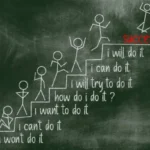Why Resume Skills Matter More Than Ever
In today’s job market, recruiters spend only 6–8 seconds scanning a resume. That’s right—your resume needs to grab attention instantly. And how do you do that? By highlighting the right skills in the right way. Whether you’re applying for a tech role or a creative gig, your skills section acts like a spotlight on your capabilities.
In a world where automation and AI are filtering resumes, the right keywords can be the difference between getting noticed or getting ghosted.
The Golden Rule – Tailor Skills to the Job
Reading Job Descriptions Like a Pro
You wouldn’t wear a tuxedo to a beach party, right? Similarly, you shouldn’t send the same resume to every employer. Job descriptions are like cheat codes. Read them carefully. They’ll tell you exactly what recruiters are looking for.
Using Keywords Strategically
Spot phrases like “project management,” “Python,” or “customer service”? Use those exact terms in your resume if they match your experience. This boosts your chances of getting past ATS (Applicant Tracking Systems).
Hard Skills vs. Soft Skills
What Are Hard Skills?
Hard skills are the teachable abilities you’ve picked up from school, work, or training. Think Excel, SEO, Python, or accounting. They’re usually measurable and easy to prove.
What Are Soft Skills?
Soft skills are all about how you work. Things like teamwork, time management, and emotional intelligence. They’re harder to quantify but just as important.
Top Technical Skills That Make You Stand Out
Coding & Programming
If you’re in tech, coding is your bread and butter. Recruiters go crazy over skills like Java, JavaScript, Python, SQL, and even HTML/CSS for basic roles.
Data Analysis & Visualization
We live in the age of data. If you can use Excel, Tableau, Power BI, or Google Analytics, you’ve got a massive edge.
In-Demand Soft Skills Recruiters Love
Communication & Collaboration
Ever worked with someone who just gets the team vibe? That’s what companies want. Clear communication and a cooperative mindset can make you indispensable.
Problem-Solving & Adaptability
Jobs change. Projects shift. Adaptability shows you’re flexible, while problem-solving proves you don’t panic—you plan.
Leadership and Management Skills
Leading Teams Effectively
Even if you’re not in a management role, leadership counts. Think about times you led a group project or mentored a junior colleague. Highlight that.
Strategic Decision-Making
Recruiters love people who can think ahead. Showing that you’ve made data-backed decisions or handled tough calls adds credibility.
Creativity and Innovation
Thinking Outside the Box
In a saturated job market, creativity is currency. Maybe you streamlined a process or introduced a fresh idea—mention it!
Examples in the Workplace
Don’t just say you’re creative. Back it up with real examples—a new campaign, a novel approach to solving customer complaints, anything that shows flair.
Digital Literacy and Tech Proficiency
Essential Tools and Platforms
Knowing your way around tools like Slack, Asana, Canva, Notion, or Salesforce is a huge plus. Most jobs today involve some level of digital literacy.
Staying Updated with Trends
Tech evolves fast. Showing that you stay current with emerging tools or platforms can make you a valuable asset.
Time Management and Organization
Meeting Deadlines
Being skilled is great. Delivering results on time is better. Mention how you managed overlapping deadlines or tight schedules.
Prioritizing Work Efficiently
Talk about your to-do list strategy or your use of tools like Trello or Notion to stay organized.
Emotional Intelligence (EQ)
What is EQ?
It’s your ability to understand and manage emotions—yours and others’. EQ helps you navigate tricky situations, resolve conflicts, and stay calm under pressure.
Why Recruiters Care About It
High EQ = better teamwork, stronger leadership, and less drama. That’s a win in any workplace.
Skills Specific to Remote Work
Self-Discipline
Working from home isn’t for everyone. If you can show that you’re self-motivated and disciplined, recruiters will love you.
Tech-Savvy Communication
Proficiency with Zoom, Google Meet, Slack, and collaborative platforms like Miro or Figma makes you a remote-ready superstar.
Multilingual and Cross-Cultural Skills
Benefits of Knowing Multiple Languages
Languages like Spanish, French, Mandarin, or German open doors to global clients. Even basic proficiency is a win.
Global Mindset
In diverse workplaces, understanding different cultures helps you fit in and build stronger relationships.
Certifications and How They Boost Skills Section
Popular Certifications
Certs like Google Analytics, AWS Certified Cloud Practitioner, PMP, or Microsoft Excel Specialist carry serious weight.
Where to Get Them
Sites like Coursera, Udemy, and LinkedIn Learning are goldmines for certifications.
How to Present Skills on Your Resume
Formatting Tips
Use bullet points. Keep it clean. Group skills into categories: Technical, Communication, Management, etc.
Where to Place Them
Include a dedicated “Skills” section at the top or side, and weave key skills naturally into your work experience too.
Common Mistakes to Avoid
Overstuffing with Buzzwords
Saying you’re a “motivated team player” ten times? Meh. Let your achievements prove it instead.
Being Too Generic
Instead of just “good with people,” say “built client relationships that boosted sales by 20%.” Specific = believable.
Conclusion
There’s no one-size-fits-all when it comes to resume skills. The key is to highlight the most relevant skills for the job you’re aiming for, back them up with real examples, and present them clearly. Don’t forget—your resume is your personal marketing pitch. Make every word count.
FAQs
1. What are the top 5 resume skills in 2025?
Communication, adaptability, data analysis, leadership, and emotional intelligence are leading the pack in 2025.
2. Should I list every skill I have on my resume?
Nope. Only include skills that are relevant to the job you’re applying for. Less is more when it’s strategic.
3. How can I improve my resume skills?
Take online courses, practice regularly, and look for mentorship or real-world projects to apply your skills.
4. Where should I list certifications on my resume?
Add them in a separate “Certifications” section or within the skills section if space is tight.
5. How do I know if my resume has the right keywords?
Use tools like Jobscan to compare your resume with the job description and optimize accordingly.





